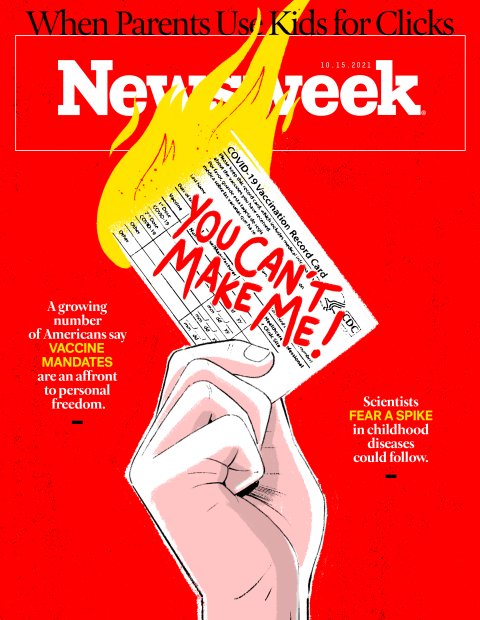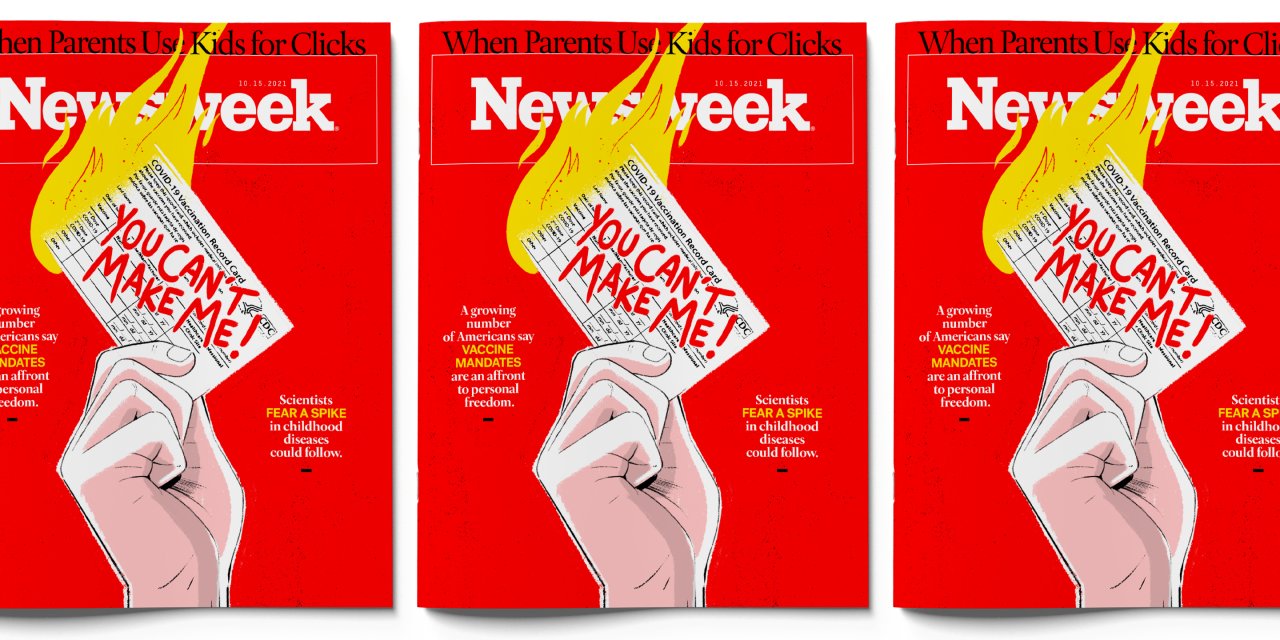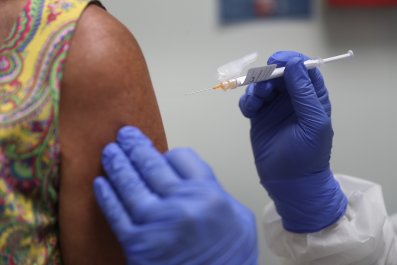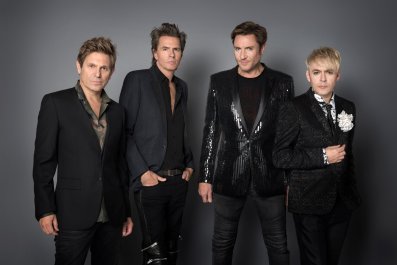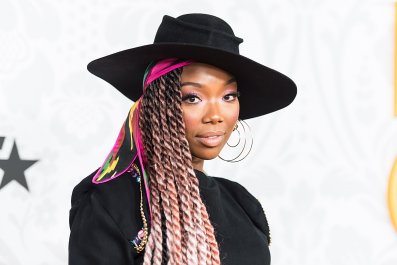A recent gathering in a Quality Inn ballroom in rural Bradley, Illinois, offered a glimpse—terrifying to most epidemiologists, thrilling to longtime vaccine "safety" activists—of America's growing political divide over vaccinations and its implications for the nation's health. Ostensibly, the meeting was a community forum about employer mandates for COVID vaccines that the organizer expected to draw 80 people in this overwhelmingly Republican exurb of Chicago. Instead, more than 300 people piled in, mostly to complain about the notion that anyone—a boss, a school, a government—could force them to take any vaccines at all. As one Libertarian county commissioner told the crowd: "I will fight for your right to believe in whatever god, medicine or way of life you choose."
The event is being replicated in some form or another in cities and towns across America, emblematic of a growing grassroots movement of people who believe that vaccine mandates—for COVID, yes, but increasingly for other diseases as well—are an affront to their personal freedom. That represents a marked shift from pre-pandemic times, when vaccine opponents typically based their reasoning on medical concerns and were largely comprised of a few religious sects and a small number of left-leaning activists seeking explanations for rising rates of autism. As the anti-vaxx mandate movement gains political traction, particularly on the right, medical experts fear it could not only cripple efforts to eradicate COVID but could also lead to a surge in long-conquered diseases, from mumps to whooping cough to smallpox.
"There are some more conservative states where we are likely to see other non-COVID vaccine mandates under attack, and it is very worrisome," says Marcus Plescia, chief medical officer of the Association of State and Territorial Health Officials. "If we have some of these pediatric infectious diseases come back, it will be horrific."
Even before President Joe Biden's September 9 announcement of a litany of aggressive COVID vaccine mandates—covering an estimated 100 million Americans, including federal health workers and companies with more than 100 employees—evidence of changes in policy and sentiment toward such rules was cropping up, led by the right. This summer the Tennessee Department of Health, reportedly pushed by GOP lawmakers, directed its staffers to stop conducting "proactive outreach regarding routine vaccinations," including those for childhood diseases, HPV and influenza. Larry Elder, the top Republican vote-getter in the failed recall effort against California's Democratic Governor Gavin Newsom, told the Los Angeles Times editorial board in August, "I don't believe that the state should tell a parent whether or not a child should be vaccinated. That's an intrusion of state power." In Minnesota this month, the conservative group Action 4 Liberty, which boasts an email list of more than 100,000 recipients, began hammering a leading Republican candidate for governor for refusing to sign the group's "Stop Vaccine Mandates" pledge.
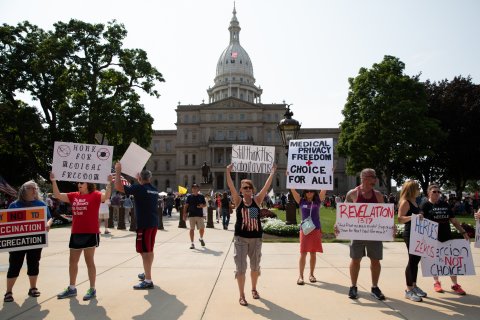
"Those vaccines have had a long history of use, so there's certainly data that suggests that they're relatively safe," the group's president, Jake Duesenberg, tells Newsweek. "But it always has to be a choice of individuals. You can't have government forcing that on us."
In all, some 22 percent of Americans now identify as "anti-vaxxers," defined as people who support vaccine refusal and "embrace the label as a form of social identity," according to a report by researchers at Oklahoma State University, Texas A&M University and others, published in the journal Politics, Groups, and Identities. Underscoring concerns of public health experts, the study also found identifying as an anti-vaxxer to be predictive of increased opposition to childhood vaccine requirements.
Meanwhile, signs are also mounting about the partisan nature of growing opposition to vaccines and vaccine mandates, and the shift from medical to libertarian reasoning. Asked in a survey by the Kaiser Family Foundation whether getting the COVID vaccine is a matter of "personal choice" or "part of everyone's responsibility to protect the health of others," more than 70 percent of Republicans saw it as a personal choice vs. just 27 percent of Democrats. And according to a Twitter analysis by Renee DiResta, research manager of the Stanford Internet Observatory, reported in The New York Times, even anti-vaxxers whose opposition in the pre-COVID era was focused on concerns about autism and toxins are now evolving their messaging to talk about freedom and "vaccine choice."
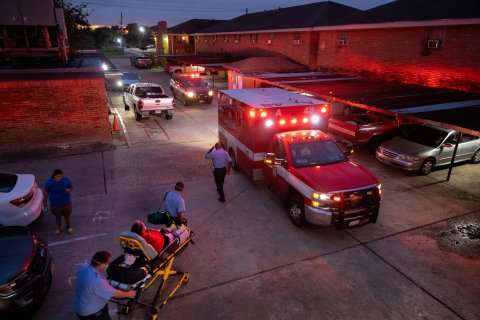
"The coalescing of previously distinct groups that are now more aligned on this issue of opposing vaccines is new," says Douglas Opel, a pediatrician at Seattle Children's Hospital and author of numerous papers on vaccine hesitancy among parents. "The politicization of the COVID-19 vaccine development and authorization process has been a concern of all of us on what that might mean for vaccine confidence and the sustainability of immunization programs generally."
The Road to Here
Until recently, mandates for vaccinations—which mostly surface when parents try to enroll their children in daycare facilities or schools—were a relatively uncontroversial, routine part of preventing the spread of mostly vanquished infectious diseases. Every state has such mandates, and all but six allow exemptions for reasons of either religious or "personal belief." In California, Connecticut, Maine, Mississippi, New York and West Virginia, only exemptions for medical reasons are acceptable.
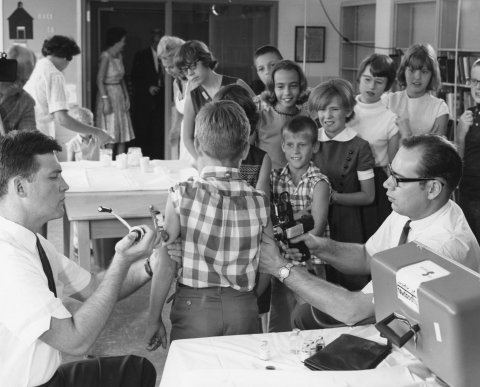
Opposition to such mandates in the decades before COVID included the likes of Robert F. Kennedy Jr. and the actress Jenny McCarthy, both liberal skeptics of vaccine science who promoted theories about widespread vaccine side effects that have been aggressively debunked and dismissed by the medical community. When the country experienced outbreaks of diseases such as measles—an illness that in 2000 was declared eradicated in the U.S. by the World Health Organization—the overall numbers were in the dozens or hundreds, which is relatively small. In California, where a 2014 outbreak was traced to Disneyland, and New York, where surges in 2019 were connected to insular Orthodox Jewish communities, lawmakers quickly voted to eliminate the ability of parents to opt out of vaccinations for religious or personal reasons.
Yet what scares epidemiologists now is that many conservatives who denounce vaccine mandates are eliding the medical questions of whether they are safe. Instead, says David Rosner, a Columbia University historian who specializes in the intersection of politics and public health, they're focusing on a political view that requiring them is wrong.
"We are at the beginning of a much more profound change that may lead to resistance to other vaccines but also may lead to disintegration of any sense of social obligation, social cohesion and social purpose," he warns. "It's part of the questioning of what the country is and what it represents. When you see this kind of breakdown and unwillingness to work together, even under the most obvious circumstances where we've had more than 650,000 people die, it feels like the beginning of a major dividing point."
Many opponents—like Elder and Ohio Senate candidate Josh Mandel, who likened vaccine mandates to the Gestapo—are themselves vaccinated for COVID-19 and aren't voicing criticism of the safety or efficacy of the shots themselves. They merely insist that it's not the government's role to force the shots on people, many of whom question the record speed of the vaccines' development, prefer to rely on natural immunity the body may develop after being exposed to COVID or believe a wide range of misinformation, from the myth that the shots contain microchips capable of tracking movement to concerns of potential harm to the reproductive systems of women of child-bearing age.
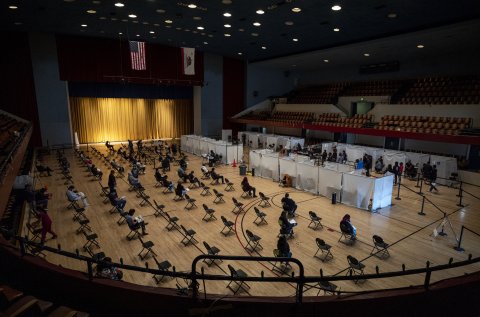
"I am not against anyone getting the COVID vaccine, it's their choice," says Duesenberg, who declined to say if he is vaccinated against COVID. "From someone that's not in the medical profession, there are risky classes of individuals who, if they were to contract the COVID-19 disease, it could be very bad for them. There's a big argument for them to get the COVID vaccine. But for young, healthy individuals, that risk-reward is way different. I've heard even doctors ask why a young healthy person would get the vaccine when you don't know the long-term effects of it. Either way, it can't be the government's choice."
That notion, though, threatens to upend more than a century of bipartisan acceptance and judicial support for the government's ability to impose vaccine requirements. As recently as mid-August, in fact, Supreme Court Justice Amy Coney Barrett, a conservative, declined to block a requirement from Indiana University that all students and faculty be vaccinated for COVID. In doing so, Barrett upheld a ruling by the 7th Circuit Court of Appeals, featuring all Republican appointees, that said vaccine requirements "have been common in this nation" and citing a 1905 Supreme Court decision upholding a smallpox vaccine mandate.
Still, just because the practice is constitutional doesn't mean state legislatures must continue to mandate immunizations. Nor does it mean that local boards of health will continue to be stingy about allowing exemptions if the political winds shift in such a way as to make that position untenable. The outcome, experts say, could be significant regional differences in vaccine protections.
"It's hard to know how big that group of vaccine refusers could potentially grow, but it's very clear that they will be in pockets, that they will reside together in different communities, where then we will see increased rates of certain vaccine-preventable diseases, of whooping cough, of measles, potentially of COVID, of influenza—all vaccine-preventable diseases" as a result, says Mary Anne Jackson, dean of the University of Missouri-Kansas City School of Medicine and a former member of the National Vaccine Advisory Committee and the American Academy of Pediatrics Committee on Infectious Diseases.
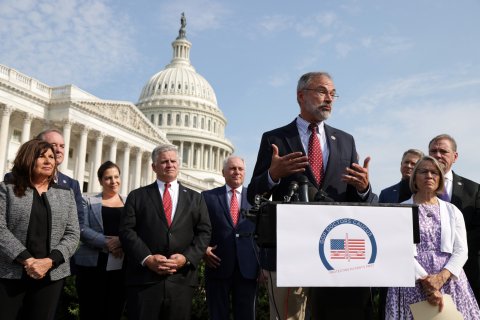
Factoring into the heightened risk is the very nature of viruses, which bide their time in asymptomatic carriers waiting for hosts whose defenses are down. Tara Kirk Sell, a public health expert at the Johns Hopkins Center for Health Security, says the outcome is that any drop in vaccination coverage in a locality could present opportunities for, say, chicken pox or rubella to sicken and spread to other vulnerable people in the community, including people too young or medically fragile to be immunized.
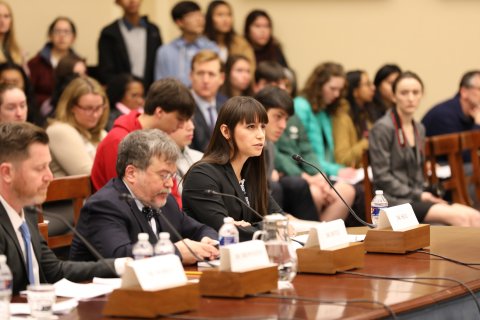
"There are strong reasons why we require vaccines in schools, because we want to make sure that kids don't end up with measles or mumps and we don't want them spreading disease throughout the community," says Sell. "It's extremely concerning that this whole concern about COVID-19 vaccines is spiraling out into those other necessary public health requirements."
Signs of Trouble Ahead
The Centers for Disease Control's data so far is of little use in assessing the impact of COVID politics on vaccination rates for other diseases. The compliance rate for the usual litany of childhood shots was more than 95 percent as of the agency's most recently published numbers, but that only goes through 2019—before the pandemic's onset.
Still, based on spot reports from different pockets of the country, the National Foundation for Infectious Diseases noted "an alarming decline in vaccination rates" last year that it says puts individuals of all ages at risk of contracting vaccine-preventable diseases. Miami-Dade County in Florida, for instance, saw a 60 percent drop in the number of children's vaccines administered in April 2020 vs. April 2019; in Michigan in May 2020, half of infants five months or younger were behind on their vaccines; in New York City, vaccine dose delivery fell 91 percent between March and May 2020. But experts attribute those drops in shots more to parents' fears of taking their kids to doctors at the height of the pandemic lockdown out of fear of contracting COVID than to raging vaccine hesitancy.
Anecdotally, however, many pediatricians see a baffling, troubling sea change. Joel Heidelbaugh, a physician who oversees family practice residents at the University of Michigan School of Medicine at a clinic in suburban Detroit, says he now sees parents who refuse vaccines for their children at least twice a week whereas such refusals pre-COVID occurred a few times a year.
"I saw a baby today who didn't get their first vaccine in the hospital because the parents didn't want to give it, and then I saw a 14-year-old for a sports physical who had not gotten the COVID vaccine and was due for an HPV and a meningitis vaccine but the mom declined both of those," Heidelbaugh says. "When I suggested that they get the COVID vaccine for the 14-year-old, Mom vehemently told me no and said she'd thrown out everything in her house that's made by Johnson & Johnson because she's against the COVID vaccine and thinks it causes more harm than good." (J&J makes one of three approved COVID vaccines in the U.S.)
To those who have long toiled in the movement to question mass vaccinations and their safety, though, such stories are encouraging. "We're seeing many more people than before the pandemic asking serious questions," says Mary Holland, chief counsel to the Children's Health Defense, a non-profit advocacy group founded by RFK Jr., son of the late California Senator Robert Kennedy, that recently organized protests around the country in response to mask and vaccine mandates. "Is it safe? Is it effective? Were the clinical trials adequate? Is there liability protection? What's happening to the people who have been injured or have died? We're certainly seeing a level of interest in the movement for vaccine safety that we didn't see before the pandemic, and we are happy to see that renewed level of interest and education."
Brian Hooker, a longtime vaccine skeptic and one of the most prominent researchers to push a debunked claim that childhood vaccinations cause autism, agrees. "It's quite astounding to have more than 20 percent" of the public say they're anti-vaxxers, notes Hooker, a bioengineer and chair of the math and science department at Simpson University, a small Christian private college in Redding, California. "And that's not just specific to the COVID vaccine. This is something that is really, really new."
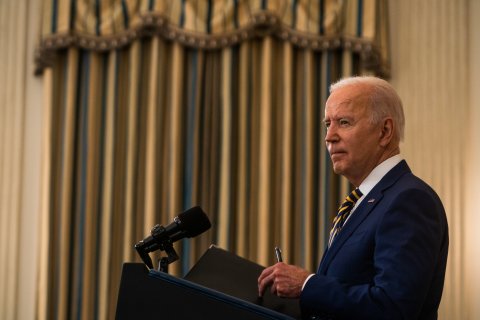
Proof Is Elusive
It's more difficult to persuade vaccine-hesitant parents like those he's encountering than it used to be, Heidelbaugh says, because their political views make them unreceptive to medical information that contradicts whatever they've heard from conservative or social media.
"I try to explain what they're due for, what vaccines we recommend, I'm happy to give literature on each of the vaccines so they understand what it's for and potential side effects," he says. "Then I explain to them the risks of being unvaccinated and tell them that there's a reason we have eradicated these diseases. And there's a reason we're starting to see some of these diseases which are preventable." Does that work? "Rarely," he says.
Sell believes this is the best approach even if it is increasingly futile: "It's much harder to debate political beliefs or values. For both sides, it is about protecting kids. You can't just come in and say, 'You're wrong,' because nothing turns someone off faster than that."
Another challenge vaccine proponents face is new data showing no recent uptick in various preventable childhood diseases over the past year when many children did not get their vaccinations on schedule. While the CDC doesn't have national numbers yet for 2020, it issued an alert in June to urge parents to catch up after analyzing data from 10 areas of the country and found, for instance, that the measles, mumps and rubella (MMR) vaccination rate dropped by an average of 63 percent among children 2 to 8 years old in 2020. Yet there was no corresponding outbreak of those illnesses and, in fact, some other childhood afflictions saw declines.
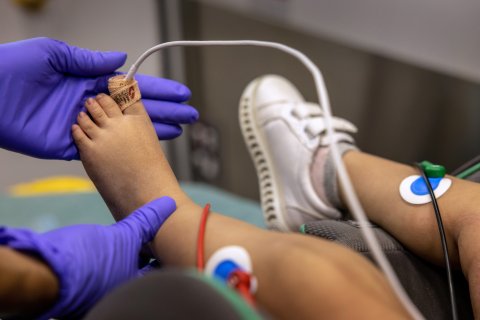
There are easy explanations for that outcome, experts say. Just as kids didn't go to doctors at the height of the pandemic lockdowns, they also didn't go to daycare or in-person school—and many wore masks and sanitized their hands when they did encounter friends and relatives—so they were cosseted from exposure to a variety of germs.
But activists like Holland nonetheless point to these declines as more proof that the sky won't fall if kids don't get their shots or don't get them on the schedule that epidemiologists and virologists insist is necessary for peak effectiveness. "We've published articles showing that infant deaths went down, Sudden Infant Death Syndrome went down during the pandemic," Holland says. (Most public health experts see no link between vaccines and SIDS; correlation doesn't equal causation.) "There are some positive associations for lower vaccine uptake that should be researched and followed up on. But instead, there's now a lot of emphasis on families catching up on their vaccines and staying with the regular schedule."
The Pushback Against Pushback
Pro-vaccine advocates say they have one important secret weapon in this battle: parents. Jackson says the overwhelming share do vaccinate and, she expects, will become more vocal if anti-vaxxers threaten the health of their kids and other loved ones. She predicts they will clamor for data on the percent of unvaccinated children in daycares and school classes, she says, and parents will make decisions about where their children go based on that information.
"There are some pediatric practices that now refuse to have kids in their practice whose parents have refused to vaccinate," she says. "That's a trend that the American Academy of Pediatrics worries about because those children also need quality providers. But pediatricians say they can't have situations where under-vaccinated children are sitting in my waiting room and could potentially bring in measles to a vulnerable population."
What's more, the cost of more frequent disease outbreaks on local health-care systems could make medical coverage more expensive for people in under-vaccinated areas. "In states that don't want to vaccinate, the insurance companies are going to either raise the premiums for all of us or they're going to have to put those states into a higher rate bracket because the risk pools in those states will go through the roof," predicts Connecticut State Representative Stephen Meskers, who earlier this year sponsored a successful measure that repealed the ability of parents to opt out of vaccine mandates based on religious or personal views. "It's not inexpensive to put people on ventilators and to have them in hospitals. So if you want to go that route, you're either going to let the hospital overfill or you're going to have to build better occupancy, and both of those have economic costs."
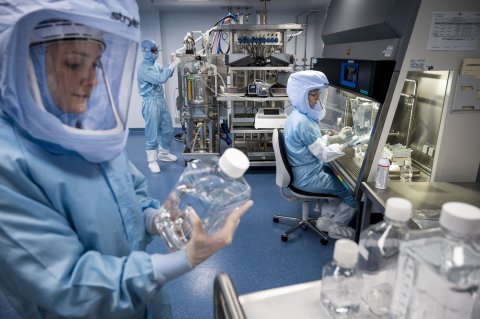
Health economists such as Jonathan Kolstad of University of California at Berkeley back up this notion. He says, "If there's an increase in the cost of supplying healthcare in a certain area, we would expect in a competitive insurance market that premiums would increase."
Holland of the anti-vaccine-mandate Children's Health Defense believes her movement emerges from COVID in a much different, stronger place. She's less sure, though, that they can count on unqualified support from the GOP. "It's accurate to say that the Democratic Party is very aligned with the vaccine agenda, but I don't think you can say vaccine choice is cemented into the Republican party platforms," she says.
And Meskers, the Connecticut State Representative, says much will depend on whether the COVID vaccines do stem the tide of the pandemic and whether the outcome differences between the vaccinated and unvaccinated remain so dramatically different. A recent CDC study found that unvaccinated Americans were nearly five times more likely than vaccinated people to contract COVID and about 29 times more likely to be hospitalized than fully vaccinated individuals; a separate study found the vaccines to be more than 90 percent effective in preventing deaths. But that could change.
"We run the risk of a breakthrough variant where the death rate picks up," Meskers says. "Are we going to get a breakthrough where the vaccine loses its effectiveness? If we do, we're going to go into another round of 'Well, the vaccine was never going to work.' And that's scary for what it will say to people about all the other vaccines out there."
